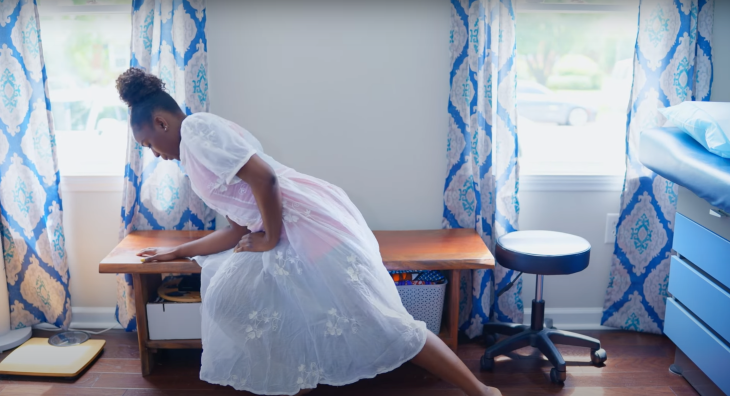A Q&A discussion will follow with Elon faculty members Stephanie Baker and Keshia Wall, with the goal of facilitating interdisciplinary feminist conversation and community.
In a world where stories are often confined to words and images, the new documentary “Reclaiming Power: The Black Maternal Health Crisis” uses the art of dance to bring attention to the black maternal health crisis. This documentary will be screened at Turner Theater on Thursday, Sept. 28, at 4:30 p.m.
Elon University Assistant Professor of Dance Keisha Wall and Associate Professor of Public Health Studies Stephanie Baker wanted to raise awareness about this crisis and believed that using dance would be the most effective approach to make an impact on a large audience.
“I want people to be able to arm themselves with information for them and for their families,” said Baker. “I want this film to inspire them to advocate for themselves.”

The documentary was originally part of Camaya Miller’s ‘18 senior research project. Baker was her research mentor, and together, they interviewed over 30 Black women. After listening to the women share their stories, Miller and Baker knew that they wanted to bring their messages to as many as possible. They presented their findings at quantitative conferences, but Baker was still searching for a way to represent their stories.
After watching the Black History Month Dance Concert in 2021, which was produced and directed by Wall, it was clear that dance was going to be their medium. Baker was particularly struck by Wall’s choreography set to Jaki Shelton Green’s poem “I Want to Undie You,” and was reminded of the words of the participants in the study.
“Dance has the power to convey complex emotions and feelings that might be challenging to express through words alone,” said Wall. “The movement, rhythm, and expression in dance can evoke a wide range of emotions in the audience, allowing them to connect with the characters and the story on a deeper level.”
After Wall and Baker decided to collaborate, they worked on conceptualizing the stories with videographer and editor Jermaine Studwell. The project was filmed in a pool, in a birth center and in a field with a cast of Elon University student dancers.

In the film, some of the interviews serve as voiceovers for the dances. Each dance was entirely improvised, but the dancers were given movement qualities that would symbolize distinct stages of the childbirth process, such as pregnancy, labor and postpartum.
A lot of the themes covered in the film are common areas discussed in the Black maternal health crisis, like intersectionality, systemic issues and health care inequities. Many of these issues have been further explored by Baker as part of her work with the Health, Equity, and Racism (H.E.R) Lab. Much of the lab’s research so far concerns maternal and women’s health among marginalized populations.
“A good number of people know at least a little bit about it,” said Baker. “But even if they know it exists, they don’t understand why.”
The film has been shared at conferences, with organizations, and at film festivals, and Baker and Wall are working on building a curriculum and website space where it will live for the longer term.
“It is my hope that viewers of this film will have a transformative experience and find themselves in deep reflection,” said Wall. “I hope the information in the film serves as a catalyst, prompting them to undertake meaningful and impactful actions in response.”
The pair will hold a Q&A session after the film, where they hope to inspire attendees to further reflect on their own healthcare institutions, how they may be creating harm, and how they can shift their practices in the future.
More information about the Turner Theater screening can be found on the cultural calendar for September.



